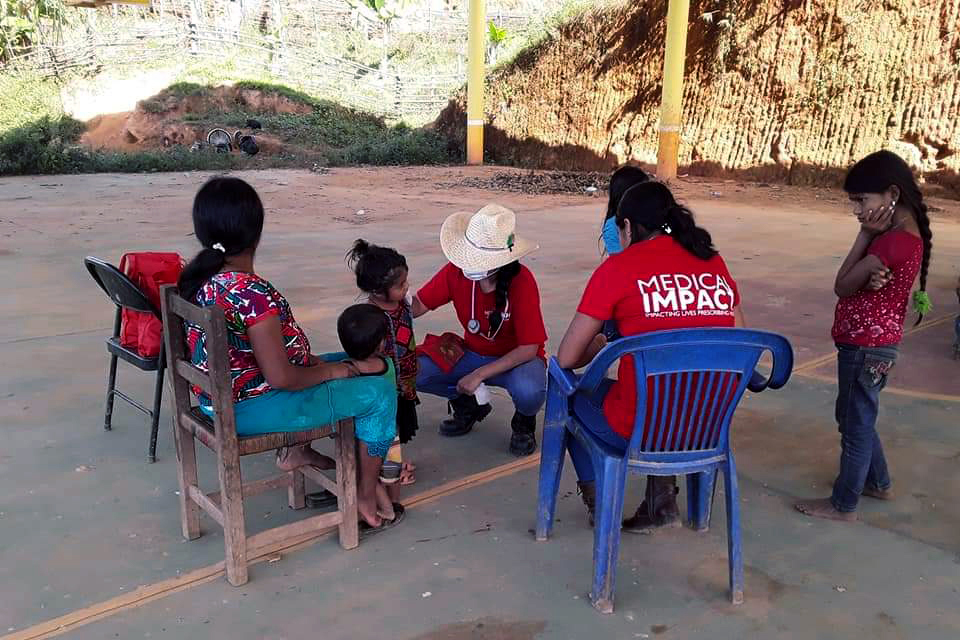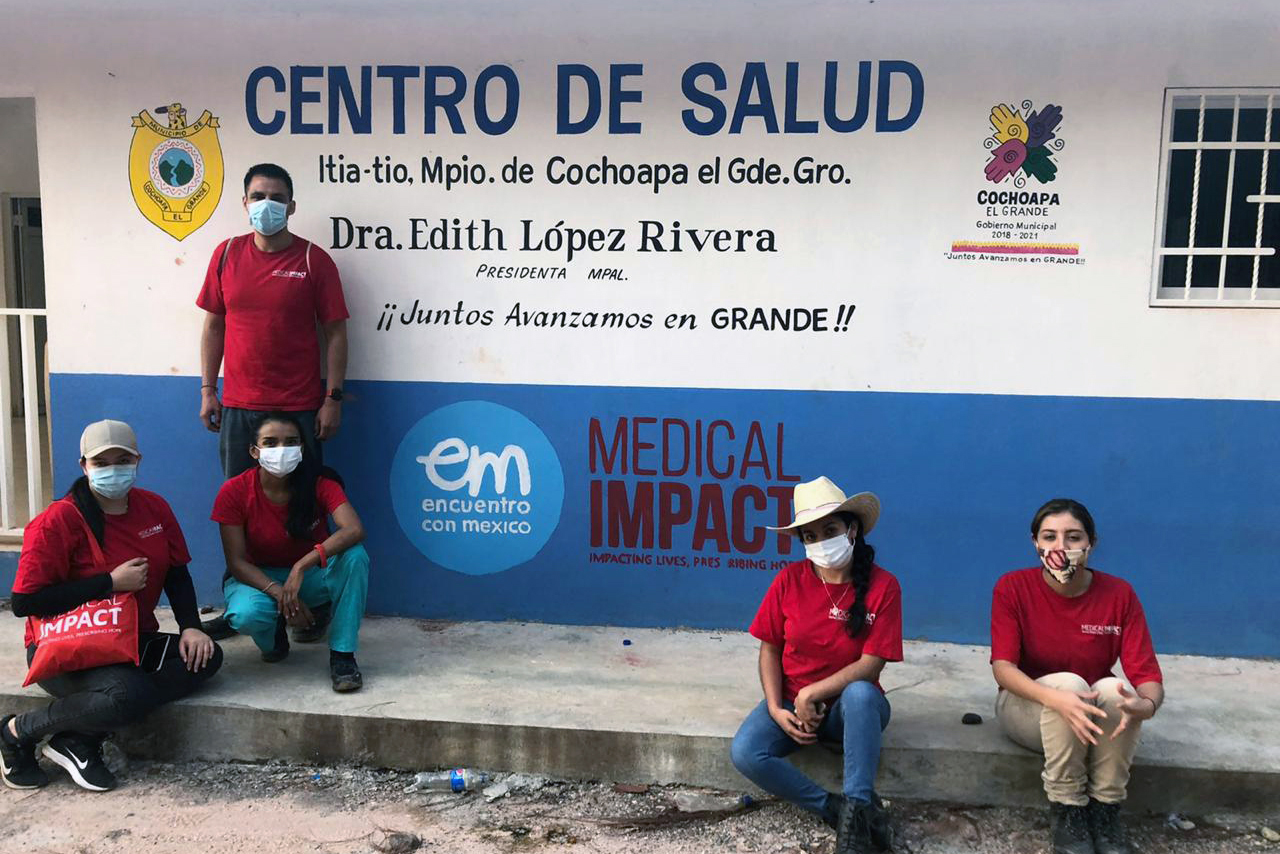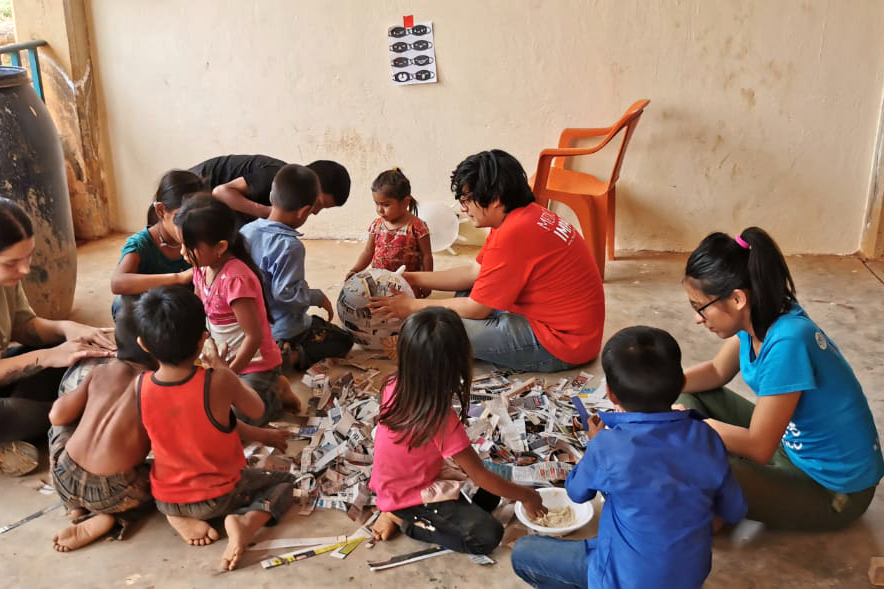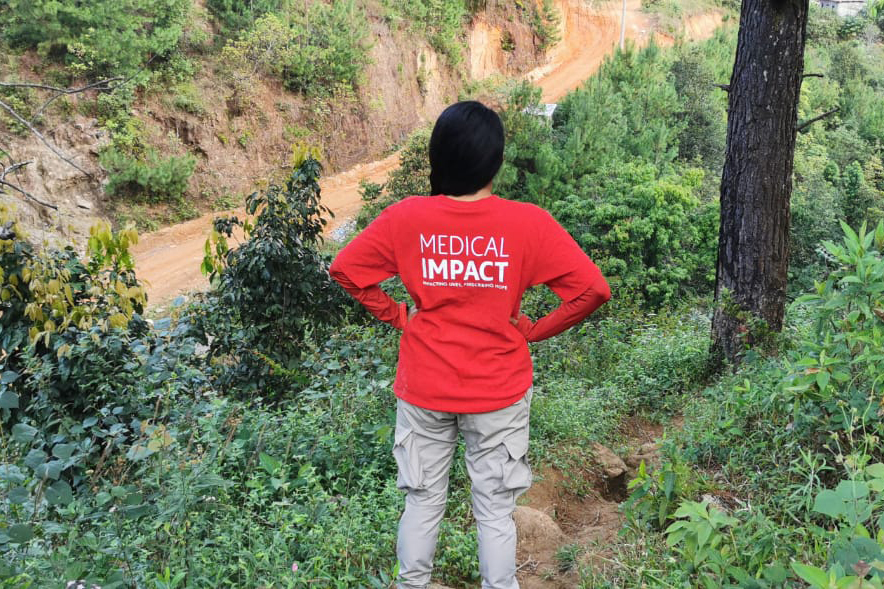Giorgio Franyuti packs the trunk of a pickup truck with medical supplies and equipment, and braces himself for a long journey from Mexico City to Cochoapa el Grande, where he will provide health care to some of the country’s most impoverished people.
“The [maps] will lie and say it takes five hours to get to the nearest city,” Franyuti told Global Citizen. “The problem is the mountains.”
The 29-year-old doctor enjoys the adventure of working in remote, unmapped, Indigenous communities. He drives 21 hours before reaching Itia-tio, the first stop on his journey through Cochoapa el Grande. In each community, he stops to set up a makeshift health clinic, where he stays for one night.
“I’ve never been in such conditions in other countries in the world,” said Franyuti, who has provided medical care in Colombia, Sierra Leone, and Ghana, to name a few. “The government is non-existent. Nobody dares to enter.”
Headlines ofpoverty, violence, kidnappings, and death dominate the news about Cochoapa el Grande, located in Guerrero state in the country’s Southwest.
While there are no official figures for the population in this area, Franyuti says there are approximately 110 communities in Cochoapa el Grande, with 100 to 300 residents each.
 Dr. Giorgio Franyuti, biosecurity expert and founder of the NGO Medical Impact, watches an ambulance speed by on a busy road in Mexico City on Dec. 20, 2020.
Dr. Giorgio Franyuti, biosecurity expert and founder of the NGO Medical Impact, watches an ambulance speed by on a busy road in Mexico City on Dec. 20, 2020.
Dr. Giorgio Franyuti, biosecurity expert and founder of the NGO Medical Impact, watches an ambulance speed by on a busy road in Mexico City on Dec. 20, 2020.
After providing care for residents in the Itia-tio community, Franyuti drives three more hours to reach San Pedro, to do the same. He visits community after community, each several hours apart, while navigating the challenging terrain of unpaved roads and occasional falling rocks from the mountains.
Due to its remote location and challenges in sustaining agriculture, hunger is rampant in Cochoapa el Grande. The municipality is one of the poorest in the country, with 88% of the population living in poverty. According to Franyuti, there is no access to social services, such as education and health care. There is no internet, mobile connectivity, or electricity.
Over the last two years, Franyuti has visited the municipality nearly 20 times through his non-profit organization Medical Impact — he says there are immense challenges in providing adequate health care there.
According to him, most residents in the communities die of preventable illnesses, such as diarrhea, tuberculosis (TB), and influenza. Because the communities are so remote, Franyuti says vaccination is impossible, as he cannot maintain the cold temperatures needed to store and transport vaccines against diseases like TB, measles, mumps, and rubella, throughout the grueling journey to this region.
Despite this reality, Franyuti believes minor changes can lead to massively improved health outcomes for these communities.
“[With] preventive medicine — although it doesn’t feel like you're achieving anything— once you go back [to a community] one to three years after, the results are massive,” he said.
Franyuti says that teaching communities about health and sanitation issues, such as hand-washing and sexual and reproductive health, has an immense impact on their long-term health.
After several visits to a particular community over the course of a year, Franyuti and his team saw such impressive improvements that they realized their presence was no longer needed. This is the goal in every community, he said.
“Sustainable development is not a dream, it’s achievable. If you want to leave your mark in the world — help people achieve sustainable development,” he said. “It sounds romantic, but I want to see many more achieve it, I want to see the hardest [-to-reach communities] achieve it.”
On a visit to a community in Cochoapa el Grande, Franyuti met Laura, a 17-year-old aspiring nurse. She volunteered to translate between Spanish and Mixtec, the language spoken by her Indigenous community.
Franyuti trains community members on basic health and hygiene practices and taps into people like Laura, who can be key players in improving her community’s well-being.
“The solution was not to go as 'white saviors,' but rather the key we promoted was to teach them to solve the issue by themselves,” Franyuti explained.
After the sun sets, Laura gathers with her community around a projector for an outdoor film screening of a popular movie — a rare treat whenever Franyuti visits. Halfway through, the movie is interrupted by an unconventional commercial break featuring Laura, who appears on screen to deliver a health message.
“If you want to see the end of the film, you have to see my commercial,” Franyuti tells the residents.
 Franyuti stands at one of the collapsed buildings where Medical Impact worked recovery after the devastating earthquake in 2017. Forty-nine people died when the building collapsed. "This is the first time I've been back since 2017... I just have chills."
Franyuti stands at one of the collapsed buildings where Medical Impact worked recovery after the devastating earthquake in 2017. Forty-nine people died when the building collapsed. "This is the first time I've been back since 2017... I just have chills."
Franyuti stands at one of the collapsed buildings where Medical Impact worked recovery after the devastating earthquake in 2017. Forty-nine people died when the building collapsed. "This is the first time I've been back since 2017... I just have chills."
His unorthodox approach has helped make a name for Medical Impact, which he founded in 2017 at 26 years old.
“I hate meetings. I hate reports,” he said. “I think it’s such a waste of time and money. You will see now, during COVID-19, that meetings don’t solve problems — it’s action. Action changes the world, so I focus on action.”
Shortly after starting the nonprofit, Mexico was hit with two powerful earthquakes, just 11 days apart, in Oaxaca and Mexico City. As Franyuti’s team responded to the disasters, he livestreamed their work on social media.
Medical Impact, which has a team of les than 20 employees and 400 volunteers, focuses on providing primary health care to Indigenous and undocumented migrant populations in Mexico.
Franyuti says the fear of being detained and sent back to their countries keeps migrants from seeking health care. In addition, social factors common amongst these groups, such as poverty and malnutrition, exacerbate health issues and makes them more vulnerable to illnesses like TB.
According to Franyuti, TB is massively undiagnosed in the country’s migrant population. An infectious disease, TB mainly impacts the lungs and can be deadly.
“[This disease] is the one I care about the most because it affects the furthest left behind. TB is an issue of equality, not just an infectious disease,” he says.
Medical Impact, which provides TB testing for migrants, has partnered with the government of Mexico to hand over patients who test positive for the disease while protecting their identity. This ensures migrants can receive adequate care without concerns of deportation.
 (L) Dr. Franyuti stands by a shelf in his home designated the "memory wall." On this wall are trinkets, drawings, toys, scrap papers, badges, and more from all corners of the world. (R) A drawing from a child in Cochoapa that Dr. Franyuti has kept.
(L) Dr. Franyuti stands by a shelf in his home designated the "memory wall." On this wall are trinkets, drawings, toys, scrap papers, badges, and more from all corners of the world. (R) A drawing from a child in Cochoapa that Dr. Franyuti has kept.
(L) Dr. Franyuti stands by a shelf in his home designated the "memory wall." On this wall are trinkets, drawings, toys, scrap papers, badges, and more from all corners of the world. (R) A drawing from a child in Cochoapa that Dr. Franyuti has kept.
Although TB can be prevented and a vaccination exists and is part of the country’s national childhood immunization program, Franyuti says the vaccine, Bacille Calmette-Guérin, is in short supply nearly everywhere in Mexico.
“You cannot even find it in Mexico City,” he said. “You can even have the money and you cannot get it because of restraints around acquisitions.”
While it’s frustrating, Franyuti focuses on what he can control: creating an impact by strategically collaborating with the government and other nonprofits, leveraging their resources when possible.
He says Medical Impact carries out the majority of its work without having to secure its own budget. For example, Franyuti bartered his services as a medical doctor with an organization that gave him access to their pickup truck, which he uses on visits to Cochoapa el Grande.
 Dr. Giorgio Franyuti stands for a portrait in the Roma Norte neighborhood of Mexico City on Dec. 20, 2020.
Dr. Giorgio Franyuti stands for a portrait in the Roma Norte neighborhood of Mexico City on Dec. 20, 2020.
Dr. Giorgio Franyuti stands for a portrait in the Roma Norte neighborhood of Mexico City on Dec. 20, 2020.
“That’s the marvelous part — you can accomplish things. You don’t need huge budgets, you don’t have to have a seat at the UN, you don't have to have presidential approval. You can be a normal citizen … and go out and change the world,” he said.
“People tell me changing the world is not quite possible, but it’s quite possible — and it’s quite easy.”
If 2020 has taught us anything about global health, it’s the importance of vaccines. The World's Best Shot is a profile series dedicated to sharing the stories of vaccine activists around the world.
Disclosure: This series was made possible with funding from the Bill and Melinda Gates Foundation. Each piece was produced with full editorial independence.



